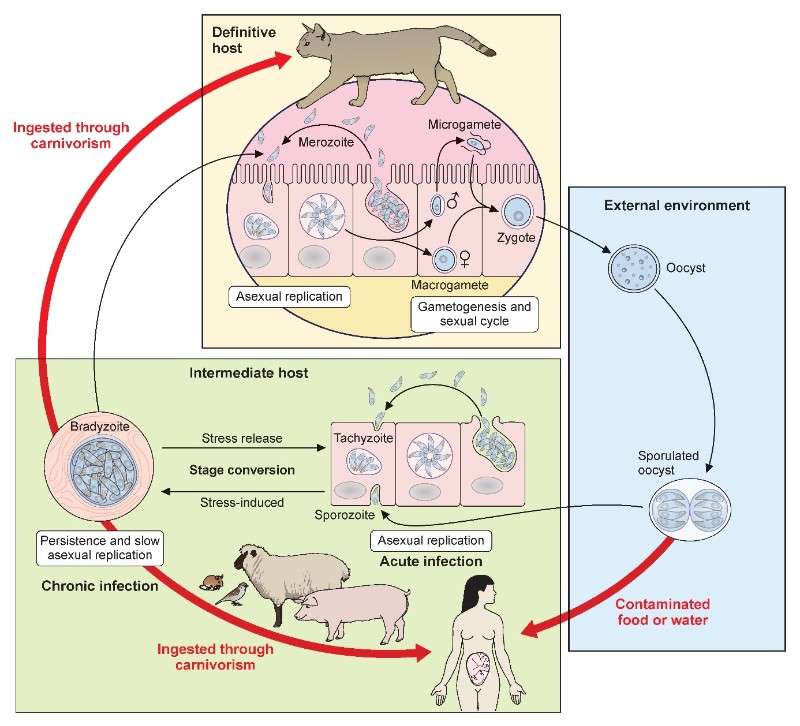Role of the apicoplast in Toxoplasma gondii metabolism and survival
Head of group: Dr. Sébastien Besteiro
CONTRIBUTION OF THE APICOPLAST TO THE METABOLISM AND SURVIVAL OF T. GONDII IN THE CONTEXT OF ACUTE AND CHRONIC TOXOPLASMOSIS
Toxoplasma gondii is a parasitic protist infecting a wide variety of warm-blooded animals and about one third of the human population. Although it remains essentially asymptomatic in immunocompetent individuals, this parasite can cause a life-threatening disease called toxoplasmosis in fetuses, newborns, and individuals with weakened immune systems. Our group studies how these obligate intracellular parasites multiply and persist in the host. We are targeting essential cellular processes, which are thus sometimes conserved among eukaryotes, but bearing enough differences to make them interesting potential therapeutic targets in the parasites.

Figure 1: The Toxoplasma gondii life cycle. The pathogenicity and virulence of Toxoplasma gondii. Sanchez SG, Besteiro S. Virulence. 2021 Dec;12(1):3095-3114. doi: 10.1080/21505594.2021.2012346.